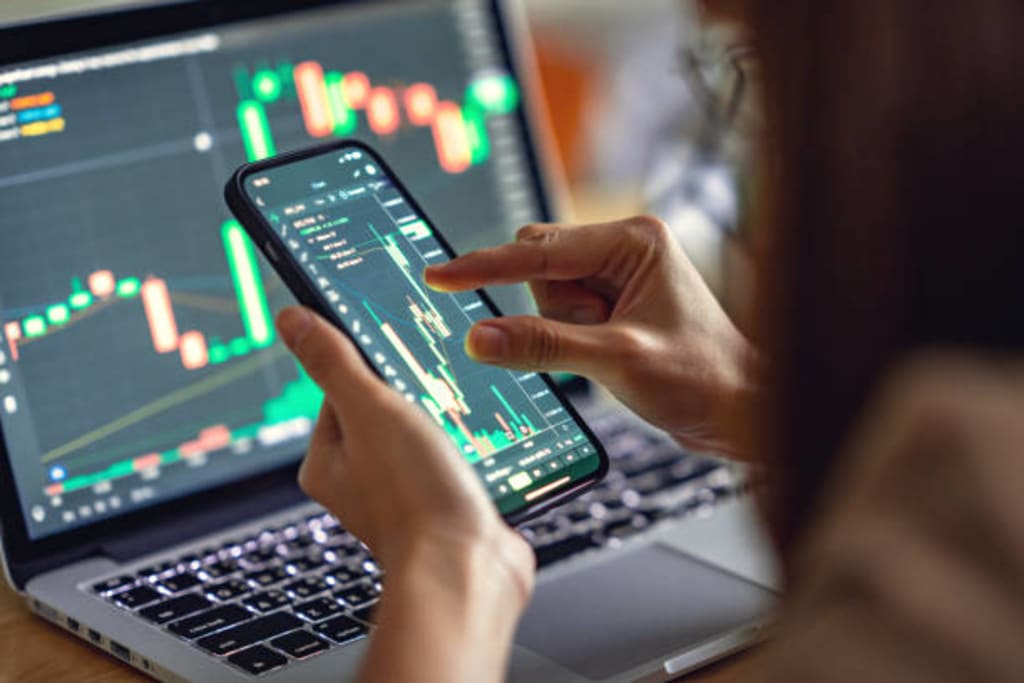How Your Forex Broker Is Always Trading Against You (And Why It Doesn't Matter)
ECN, STP, DD, MM brokers, it's all the same thing.

Everyone is trading against you in the markets; you just have to outsmart them.
But here, we'll talk specifically about forex because it's the instrument I have the most experience with. We all know that you need a broker to trade currencies (well, most of us).
Everything has a type; it's no different with brokers. Most of these companies get a bad rep in the industry. There are always traders who believe they are trading against or manipulating them.
In response to ease such concerns, brokers position their service as the most transparent among their competitors. You'll often see them advertising terms like:
- DMA (direct market access)
- STP (Straight Through Processing)
- ECN (Electronic Communications Network)
This contrasts brokers who are so-called 'market makers,' 'dealing desks, ' or 'B-books.'
The point of this article is to dispel the myths and explain why it doesn't matter as much as you've been made to believe the type of broker you use.
What decentralisation means
I won't go into detail about the abovementioned terms (there's Google for that). The key to understand is that forex is a decentralized financial instrument. This contrasts markets like stocks (and, often, crypto) that have always had a centralized exchange.
It's why we trade with 'brokers' and not 'exchanges' in forex. These are two similar institutions but have vastly different execution models.
- You trade directly with other buyers/sellers with an exchange
- Whereas with a broker, they are the middleman between buyers and sellers; everything goes through them
Decentralization means a few things. Firstly, forex providers (whether we are talking about banks or a bureau de exchange) are not confined to a central location. This is a plus since they can spread themselves beyond business hours, which is one reason forex trading can run 24/5.
The downside is the lack of regulation (or transparency) regarding ethics and price uniformity. You'll notice that the price of any pair across 100 brokers will be almost identical but not exactly.
The next question is, where exactly are they getting their price from? This is where some will use those buzzwords with little to no proof.
The broker type doesn't matter
Here's a (harsh?) truth that's rarely discussed: there is always an entity trading against you, like it or not.
Whether that's a broker or so-called liquidity provider, someone must 'take the other side of your trade.' For every buyer, there needs to be a seller, and vice versa. Placing a buy order means the broker has to somehow find a seller on their platform (or become the seller) to sell to you; the opposite is true.
This is where we get into the whole argument of 'market maker vs. ECN/STP.' As explained earlier, decentralization takes away transparency. You cannot see volume, number of active traders, and other key price data in a non-centralized setting.
This is precisely how it is in forex. Thus, unless you work for the broker and can see their back end, there's no way of knowing their actual execution model.
Again, so-called ECN or DMA brokers offer little to no proof. Therefore, it's not far-fetched to assume that the majority of these companies create their own market. You may wonder why they don't reveal this if that's the case.
Well, technically, it's often mentioned in the fine print using jargon. But the simple reason is perception.
By its very nature, Forex is a made market; we are all trading a 'replica.'
Simple example: a broker will have 100 000 clients who trade, on average, $1 000 worth of currencies each month. The business model is that the losers will pay for the small number of winners in this massive pool of funds; it's a zero-sum game.
We all know the stats of 90% (or 95, or 99, or whichever number) of traders losing money. So the broker will always have enough to pay all their expenses and profit. Let's not forget earnings from the spread and swap.
They don't need to get any money from an external financial institution to settle the winners. This same profitable system runs other businesses like casinos and bookmakers.
Here's what matters
I'm yet to address the potential of manipulation in a decentralised market. But, while I've never experienced it, I've seen it countless times. I even remember seeing email communication from the CEO of a broker instructing clear malpractice to certain clients.
Nevertheless, we can hopefully conclude how forex is a made market. The truth is that, yes, a broker can manipulate your positions. So, you will get a few 'bad apples' who will try to cheat their clients. The only way to weed these out is by choosing regulated brokers.
Now regulation doesn't guarantee a broker will always act ethically, but it decreases the chances of foul play. Regulated brokers offer:
[Side note: on the point of regulation, avoid brokers regulated in offshore countries]
- Consistent execution (you will rarely get 'slipped,' the positions are opened and closed very quickly)
- Favourable reputation in the industry
These are the things that should matter to a client. Then, once sorted, you can focus on outsmarting the market without worrying about a broker trading against you.
About the Creator
Langa Ntuli
- fascinated by the financial markets & TradingView charts. Freelance writer @upwork (www.upwork.com/freelancers/langan)
Medium account: medium.com/@lihle_ntuli
Also a humble music nerd, football fan, knowledge hoarder, peace/love extremist.






Comments
There are no comments for this story
Be the first to respond and start the conversation.